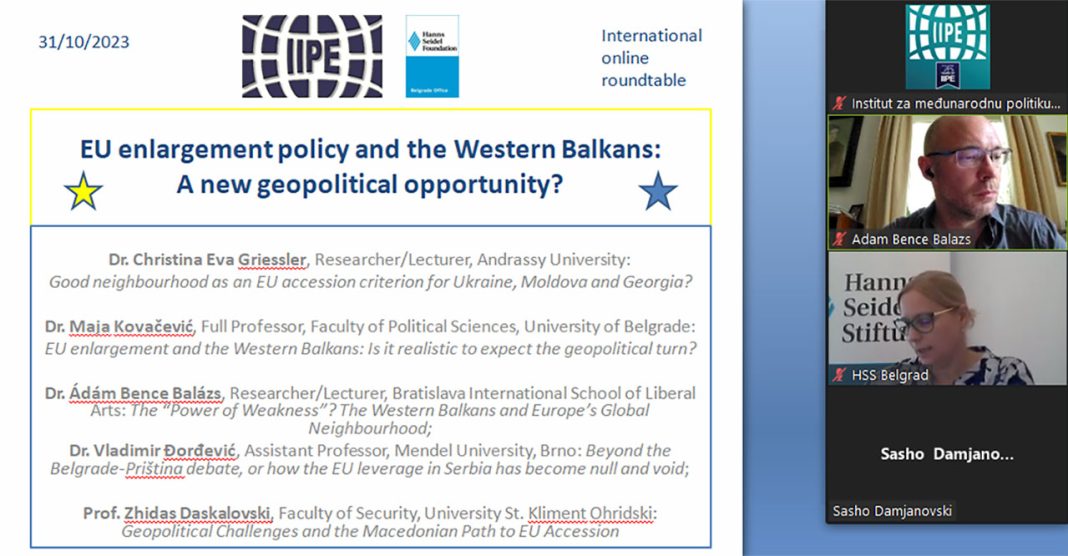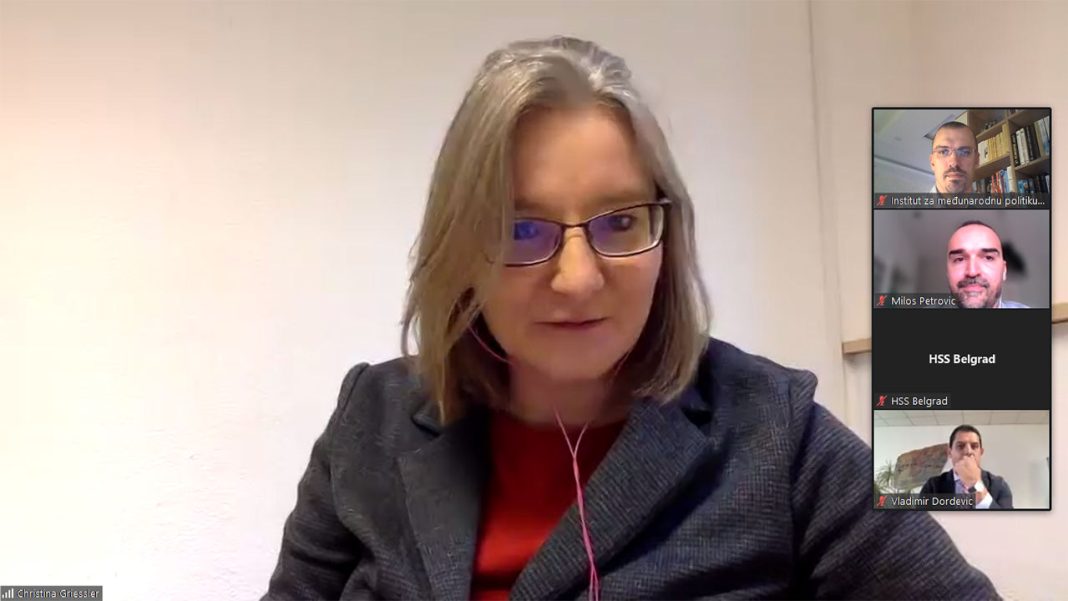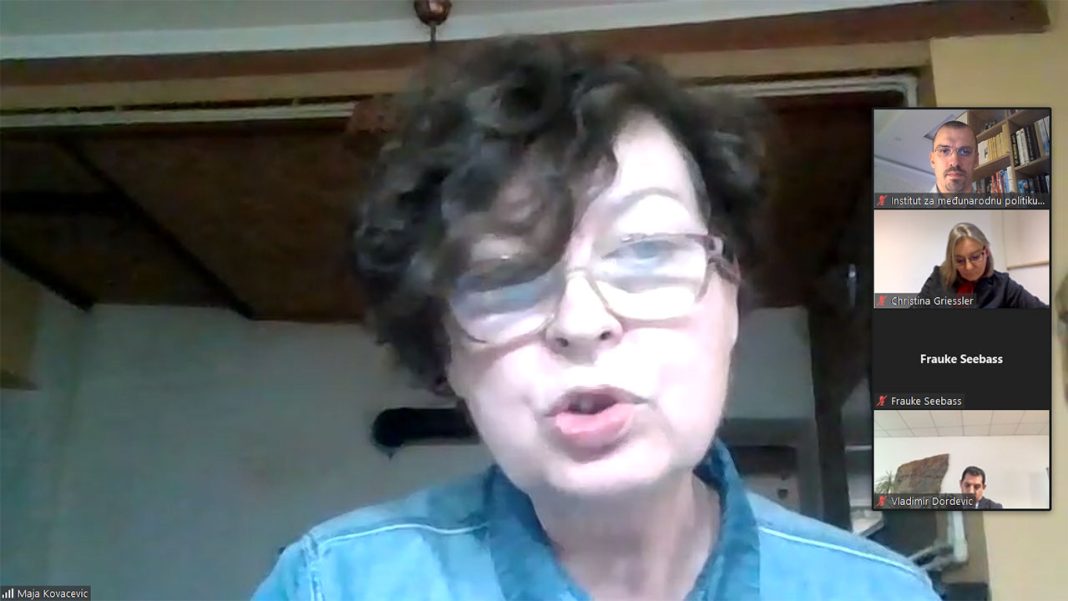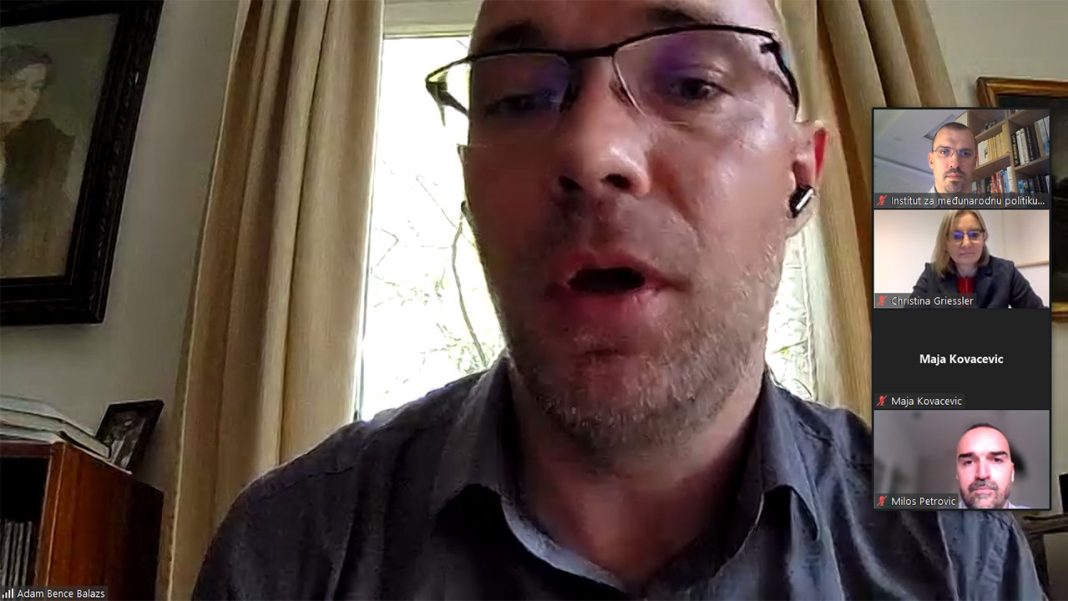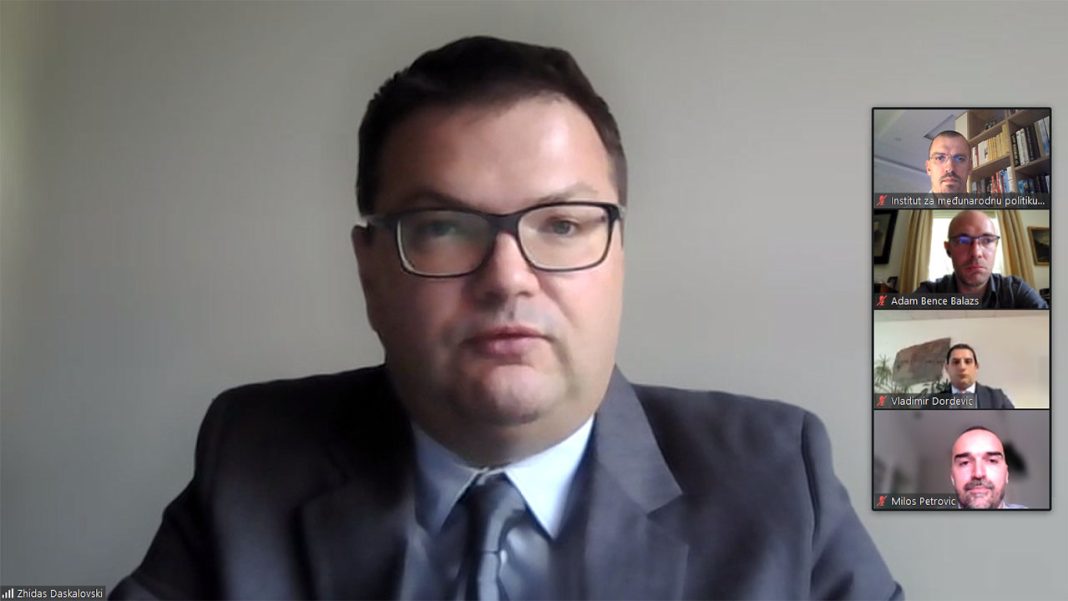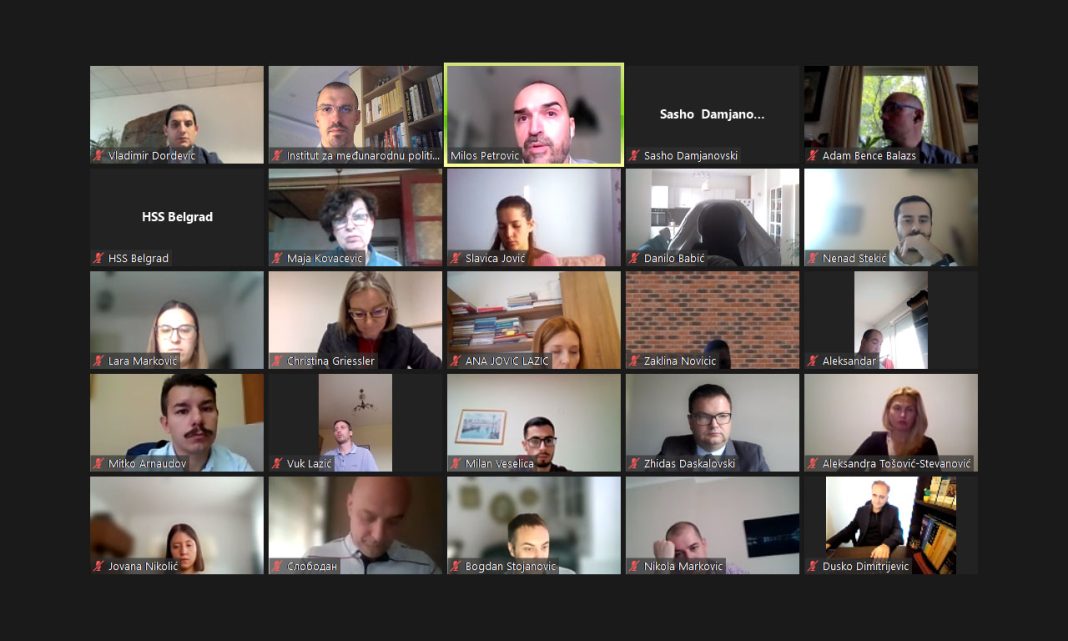The Institute for International Politics and Economics, in collaboration with the Hanns Seidel Foundation, organized an online roundtable with international participation on the topic of European Union enlargement policy and the Western Balkans in the context of new geopolitical developments.
After a brief address by the representatives of the Institute and the Hanns Seidel Foundation, a panel discussion followed, with presentations from Dr. Christina Griessler, a researcher at Andrassy University in Budapest, Dr. Maja Kovacevic, full professor at the Faculty of Political Science at the University of Belgrade, Dr. Adam Bence Balazs, a researcher at the Bratislava International School of Liberal Arts, Dr. Vladimir Djordjevic from Mendel University in Brno, Czech Republic, and Dr. Zhidas Daskalovski, full professor from the Faculty of Security at St. Kliment Ohridski in Skopje. Dr. Griessler presented research on the topic of good neighborhood as a criterion for EU accession for Ukraine, Moldova, and Georgia in the context of the Western Balkans (WB), Dr. Adam Bence Balaz discussed the concept of “power of weakness” and the WB as EU neighboring region, and Prof. Zhidas Daskalovski presented on the geopolitical challenges and the path of North Macedonia towards EU membership. These studies were published in the third issue of this year’s “International Problems/Medjunarodni problemi” scientific journal. Prof. Maja Kovacevic debated on the topic of enlargement policy and the Western Balkans and the uncertainties regarding geopolitical shifts, while Dr. Vladimir Djordjevic spoke about the dialogue between Belgrade and Pristina in the context of the declining influence of the European Union in Serbia.
The presentations were discussed by Dr. Milos Petrovic, Research Fellow at the Centre for Euro-Atlantic Studies at the Institute for International Politics and Economics. The speakers concluded with a dialogue on the limited possibilities for a geopolitical shift in the context of EU enlargement policy.


